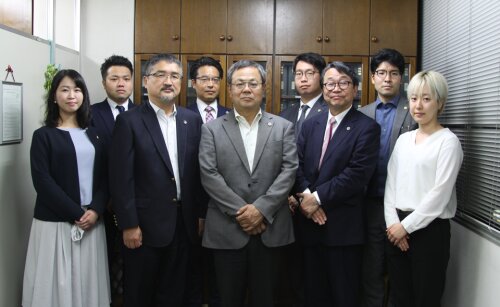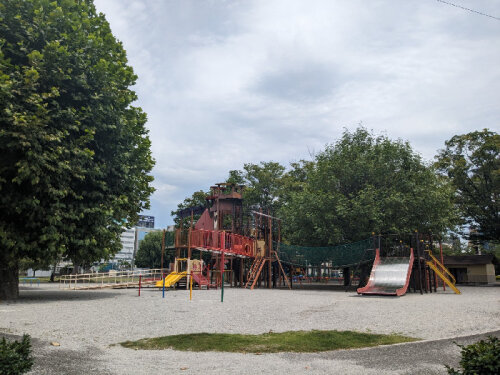Best Child Abuse Lawyers in Shizuoka
Share your needs with us, get contacted by law firms.
Free. Takes 2 min.
Free Guide to Hiring a Family Lawyer
List of the best lawyers in Shizuoka, Japan
About Child Abuse Law in Shizuoka, Japan
Child abuse in Japan is governed primarily by national statutes - including the Act on the Prevention, etc. of Child Abuse and the Child Welfare Act - together with local implementation by prefectural and municipal child welfare agencies. In Shizuoka Prefecture, suspected child abuse is handled through the prefectural and municipal child consultation centers - commonly called child guidance centers - which respond to reports, assess risk, and arrange protective measures and welfare support. Criminal conduct that harms a child may also be investigated by the police and prosecuted by public prosecutors, and family-law matters are decided by family courts. The overall system emphasizes the childs best interests, multi-agency cooperation, and a balance between protecting children and preserving families when safe and appropriate.
Why You May Need a Lawyer
People seek lawyers in child abuse matters for several reasons. A lawyer can explain legal rights and obligations, represent a parent or guardian in family court or criminal proceedings, help the accused obtain fair treatment and evidence-based defense, and assist victims or caregivers in securing protection, custody arrangements, or damages. Lawyers also help navigate interactions with child consultation centers, police, and public agencies, prepare petitions for temporary custody or protective orders, advise on evidence preservation, and apply for legal aid when finances are limited. In short, whether you are a concerned third party, a caregiver, a person accused of abuse, or the parent of an abused child, a lawyer can clarify options and represent your interests in administrative, civil, and criminal processes.
Local Laws Overview
Key legal features relevant in Shizuoka mirror national frameworks while relying on local agencies for implementation:
- Definition of child abuse - includes physical abuse, neglect, sexual abuse, and psychological abuse as defined in the national Child Abuse Prevention Act and related guidance used by local child consultation centers.
- Mandatory reporting and notification - certain professionals such as healthcare workers, teachers, and child welfare staff have strong obligations to report suspected abuse. Any member of the public may report concerns to the child consultation center or police.
- Child consultation centers - operated by prefectural governments, these centers receive reports, assess the child’s safety, provide counseling, coordinate with schools and medical providers, and arrange welfare services or temporary protection when needed.
- Temporary protection - if a center judges a child to be at immediate risk, it can place the child in temporary protective care - called temporary protection - while assessing longer-term options such as foster care or family support.
- Criminal law - acts of violence, sexual offenses, abandonment, or severe neglect can result in arrest and criminal prosecution under the Penal Code and specific statutes against sexual crimes or injury.
- Family court procedures - custody, visitation, guardianship, and parental rights issues are handled through family court processes. In severe cases, termination of parental authority may be pursued through civil procedures.
- Cooperating agencies - police, welfare offices, schools, medical institutions, and NGOs frequently coordinate with child consultation centers to provide a comprehensive response.
Frequently Asked Questions
What counts as child abuse under Japanese law?
Child abuse generally includes physical abuse, neglect, sexual abuse, and psychological abuse. Physical abuse covers violent behavior causing injury. Neglect covers failure to provide necessary care for health, education, or welfare. Sexual abuse includes sexual acts and exploitation. Psychological abuse includes severe emotional maltreatment such as constant belittling, threats, or isolation. Determinations are fact-specific and made by child consultation centers, police, or courts depending on the situation.
Who should I contact first if I suspect a child is being abused in Shizuoka?
If a child is in immediate danger call the police. For non-emergencies, contact the nearest child consultation center - the child guidance center - or the prefectural child welfare office. Japan also operates a national child consultation hotline reachable by dialing the child consultation number. Local municipal welfare offices and school counselors can also take reports and help coordinate a response.
Can I report abuse anonymously?
Yes - members of the public can make reports without identifying themselves. However, providing contact information can be helpful for investigators to follow up. Certain professionals may have mandatory reporting duties and may be required to identify themselves when making official reports.
What happens after I report suspected abuse?
The child consultation center will assess the report, contact relevant parties such as the family, school, and healthcare providers, and evaluate the level of risk to the child. If immediate danger is found, the center may arrange temporary protection. If a crime is suspected, the police may open a criminal investigation. The center may also arrange support services for the child and family aimed at safety and rehabilitation.
Can the child be removed from the family immediately?
Removal is not automatic. Child consultation centers prioritize measures that keep the child safe while aiming to preserve the family when possible. Temporary protection may be used only when the center determines the child faces imminent risk. Removal procedures follow legal standards and case-by-case assessments, and the child consultation center typically documents reasons for protective placement.
What legal risks do parents face if accused of abuse?
Parents may face criminal charges for acts causing injury or sexual offenses, which can result in arrest, prosecution, and penalties. Administrative actions by child welfare authorities can include placement of the child in protective care, conditions on parental contact, and ultimately civil actions such as petitions to restrict or terminate parental authority in extreme cases. A lawyer can advise on defense strategies and steps to cooperate with social services to support reunification when appropriate.
How can a lawyer help if I am accused of abuse?
A lawyer can explain criminal and administrative charges, represent you in police questioning and court, help gather and present evidence, communicate with child consultation centers, and assist in negotiating conditions for supervised contact or rehabilitation plans. Lawyers also help protect your legal rights and work toward outcomes that consider both the childs safety and the parents legal position.
What if I am a victim or caregiver seeking to protect a child?
A lawyer can assist in requesting protective measures, preparing petitions for custody or visitation adjustments, ensuring access to welfare services, and helping obtain compensation or remedies if applicable. Lawyers can also help you understand options for shelter, counseling, and financial support through public programs and NGOs.
How long does temporary protection last?
Temporary protection is intended as an emergency measure while authorities assess the childs needs and family situation. The duration varies with the case - from a short emergency stay to longer placements if necessary. Longer-term arrangements such as foster care or family court orders may follow if risks cannot be managed at home. Timelines are case-dependent and guided by the best interests of the child.
Can I get financial or legal aid to pay for a lawyer?
Yes. Japan operates a public legal-aid system that provides support for those who qualify, including consultation and representation in criminal and civil matters. Eligibility is means-tested. Local bar associations and legal aid organizations can provide information about applying for public legal aid and low-cost or pro bono services, and some municipalities and NGOs also offer support for families affected by abuse.
Additional Resources
- Shizuoka Prefecture child consultation centers and municipal child welfare offices - for immediate reports and welfare assessments.
- Police - for emergencies or when a criminal act is suspected.
- Japan Legal Support Center - for information on legal aid and lawyer referrals.
- Shizuoka Bar Association - for referrals to lawyers experienced in child welfare, family law, and criminal defense.
- Ministry of Health, Labour and Welfare - for national policy information and guidance on child welfare systems.
- Local social welfare councils and community welfare organizations - for local support services and counseling.
- Non-governmental organizations and shelters - for counseling, temporary shelter, and support services for children and caregivers affected by abuse.
Next Steps
- Ensure immediate safety - if a child is in immediate danger call the police right away. If not an emergency, contact the child consultation center or local welfare office to make a report and request guidance.
- Collect and preserve information - write down dates, times, descriptions of incidents, names of witnesses, and any medical or school records that document concerns. Photographs and medical reports are important where safe and lawful to obtain.
- Seek legal advice - contact a lawyer with experience in child welfare, family law, or criminal law in Shizuoka. Ask about initial consultation options and whether you qualify for public legal aid.
- Cooperate with welfare and medical professionals - timely cooperation can support the childs safety and clarify misunderstandings. At the same time, consult your lawyer before giving formal statements in sensitive situations.
- Consider support services - counseling for the child and family, parenting support programs, and social services can be arranged by child consultation centers or local welfare agencies.
- Keep records of all interactions - document phone calls, meetings, and caseworker names to maintain a clear record of the process as it develops.
- If you are unsure where to start, contact your municipal welfare office or the prefectural consultation center and request information on reporting procedures, rights, and legal support in Shizuoka.
Lawzana helps you find the best lawyers and law firms in Shizuoka through a curated and pre-screened list of qualified legal professionals. Our platform offers rankings and detailed profiles of attorneys and law firms, allowing you to compare based on practice areas, including Child Abuse, experience, and client feedback.
Each profile includes a description of the firm's areas of practice, client reviews, team members and partners, year of establishment, spoken languages, office locations, contact information, social media presence, and any published articles or resources. Most firms on our platform speak English and are experienced in both local and international legal matters.
Get a quote from top-rated law firms in Shizuoka, Japan — quickly, securely, and without unnecessary hassle.
Disclaimer:
The information provided on this page is for general informational purposes only and does not constitute legal advice. While we strive to ensure the accuracy and relevance of the content, legal information may change over time, and interpretations of the law can vary. You should always consult with a qualified legal professional for advice specific to your situation.
We disclaim all liability for actions taken or not taken based on the content of this page. If you believe any information is incorrect or outdated, please contact us, and we will review and update it where appropriate.









